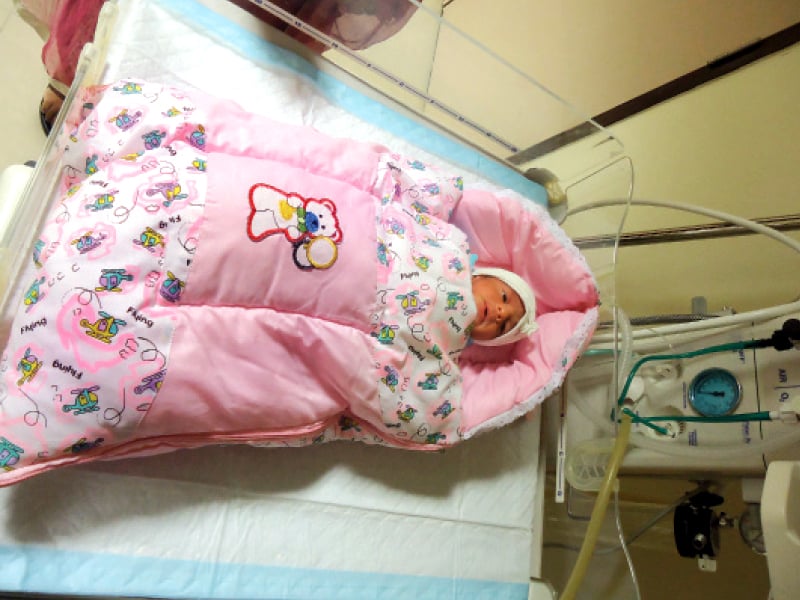
KARACHI:
The cries of Nausheen’s newborn triplets rang through the paediatrics ward as the Memon Medical Institute (MMI) Hospital performed their child delivery this July.
The birth of the triplets was not only a source of joy for her family, but also brought relief to the doctors who feared for the health of the mother and unborn babies as such pregnancies are high-risk.
Luckily, all babies were delivered through surgery, safely. They were physically perfect but were kept in an incubator for a week.
Dr Shahnaz Bibi, a consultant-gynaecologist at the MMI Hospital, who operated on Nausheen, said that such babies are always delivered via caesarean. “The availability of the latest equipment has improved the quality of monitoring at the reproductive stage, and this has considerably reduced pregnancy-related risks.”
Dr Bibi’s viewpoint was backed by Nausheen. “From the day I conceived, my health was good. I never had any problems and took complete bed rest,” she said. “It was a good experience and we are very happy with the additions to our family. It was my second delivery.”
Dr Munira Farooqui, a consultant gynaecologist, said that triplets and quadruplets, in most cases, are born premature. Their growth is restricted, and there is even risk of intrauterine death of unborn babies. The mother can suffer from many complications with anaemia, hypertension and breathlessness being the most common problems.
Doctor Bibi cited another case of 28-year old Nadia who had delivered quadruplets - two boys and two girls - at the MMI on July 5. She said that soon after the delivery, one of the girls died. The other three babies are in good health though.
Dr Farooqui said that the women who used fertility drugs were more likely to have multiple-birth pregnancies.
Nausheen says she conceived naturally. “My mother-in-law had twins, but no woman in my family ever had triplets,” she adds.
Dr Rukhsana Syed, consultant paediatrics at the MMI hospital, said that triplets can be underweight and suffer from respiratory distress syndrome and jaundice. The infants can also suffer from infections, she added.
MMI Hospital is running for the past two and a half years. Dr Shahzad Alam, medical director at the MMIH, said that a group of five people came up with the idea of starting a hospital. Around Rs1.6 billion have been spent on the project so far. “Our aim is to provide good facilities to those who cannot afford expensive hospitals,” he said, adding that the hospital is being run on 100 per cent donor funding and has 88 trustees.
Dr Alam said that the hospital management helps those who cannot afford to pay medical bills, to which Nausheen agreed. “The hospital management said that they could operate free of charge if we could not pay the bills.”
Published in The Express Tribune, September 4th, 2013.
Note: This story has been revised to fix a few editing errors.






































1713521455-0/Untitled-design-(9)1713521455-0-270x192.webp)
























COMMENTS
Comments are moderated and generally will be posted if they are on-topic and not abusive.
For more information, please see our Comments FAQ